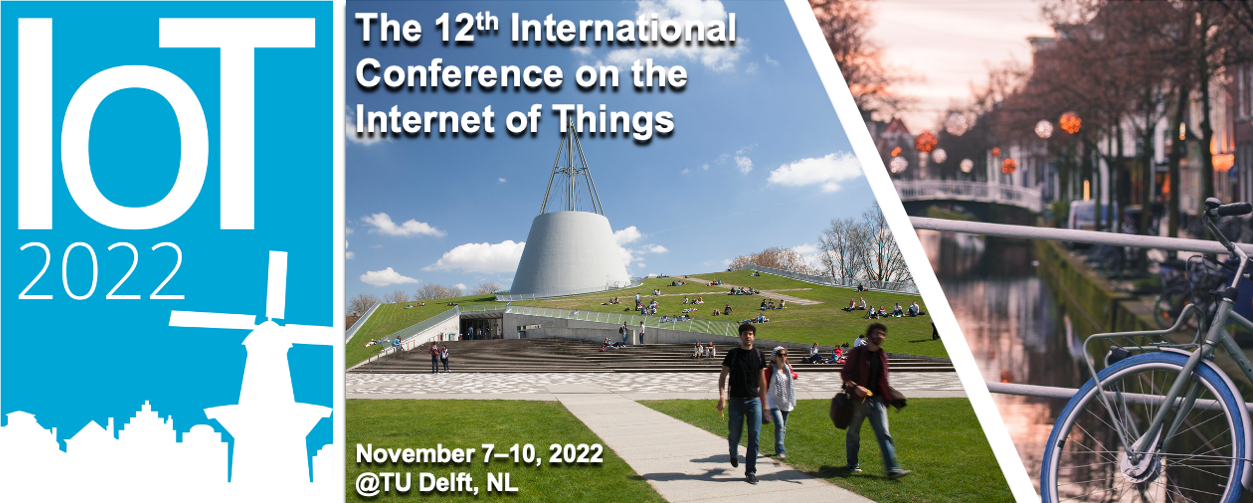Workshop: 3rd Connected World/Web & Semantic Interoperability Workshop – CWSI 2022
A Connected World/Web of Things is an emerging area that not only requires development of infrastructure but also deployment of new data services capable of supporting multiple, scalable (cloud-based) and interoperable (cross-systems and cross- domain) applications. In the race of designing the Connected World/Web as part of the Future Internet architecture, academia and Information and Communication Technology (ICT) industry communities have realized that a common problem to be tackled is the interoperability of the data and their availability for providing information services. Worldwide there is an increasingly focusing on how to evolve communications technologies to enable a Connected World, thus Semantic-enabled Web of Things systems will need to interact and be interconnected for offering the always-promoted everything-connected interoperability paradigm. The Connected World/Web & Semantic Interoperability workshop provides to developers, scientific researchers, industry experts and general audience interested in the evolution of the Internet of connected things world, the possibility to explore interoperability research challenges and provide a room to expose their research scientific ideas and progress and also explore new trends and opportunities of using semantic web technologies for solving problems and creating new solutions on emerging specialized paradigms like the current Internet of connected Things or simply acknowledge as Internet of Things (IoT).
Organizers:
Martin Serrano, National University of Ireland Galway, Insight SFI research Centre for Data Analytics, martin.serrano@insight-centre.org
Achille Zappa, National University of Ireland Galway, Insight SFI Research Centre for Data Analytics, achille.zappa@insight-centre.org
Workshop Date: November 7, 2022
Workshop: 1st International Workshop on Socio-technical Cybersecurity and Resilience in the Internet of Things (STaR-IoT)
We need to ensure that technological advances in the Internet of Things (IoT) and Cyber-physical systems are developed and applied in consumer, public and industrial contexts, safely, securely and in a way that promotes resilience. While there has been a reasonable body of work on schemes to provide IoT cybersecurity, most of the attacks on IoT systems are not purely cyber but are of a sociotechnical and physical mix. Therefore, this workshop wishes to consider research that examines both social and technical issues relating to the resilience and cybersecurity of IoT devices, systems, and networks. To this end, our workshop wishes to bring together researchers to discuss socio- technical challenges and opportunities of IoT technologies, multi-scale deployments of embedded technologies in smart cities, industry 4.0, logistics etc. In doing so, it is important to compare local and international regulation, standardization and certification, and public trust in such technologies and to examine cybersecurity and resilience of dual-use technologies. This research informs cybersecurity cyber- infrastructure resilience and current geo-political challenges, international alliances and collaboration, supply chain security, and preparedness. This is what SocTecSafe-IoT will cover.
Organizer:
J.A. McCann, Imperial College London, jamm@imperial.ac.uk
Vrizlynn Thing, ST Engineering
Joe Bourne, Lancaster University, joe.bourne@ucl.ac.uk
Workshop Date: November 7, 2022
Workshop: Next-Generation IoT Infrastructures for Real-world Applications
Today’s IoT environments are facing many limitations, such as unreliable connectivity, privacy & trust concerns, or high round-trip times. Various research programs are aiming to overcome these challenges and to develop more intelligent IoT environments. The goal is to enable next generation IoT applications, which feature semi-autonomous behavior that evolves while keeping the human-in-the-loop as an integral part of the system. With this proposed workshop, we aim to amalgamate these contributions in the context of next generation IoT infrastructures and provide a high-quality issue that stretches from fundamental research (e.g., IoT architectures and integration of constrained devices) to application-oriented topics (e.g., real-world IoT applications & deployments).
Organizers:
Simon Mayer, University of St.Gallen, simon.mayer@unisg.ch
Arne Bröring, Siemens Corporate Technology, arne.broering@siemens.com
Andreas Brokalakis, Technical University of Crete, abrokalakis@mhl.tuc.gr
Konstantinos Fysarakis, Shynx Analytics Ltd., fysarakis@sphynx.ch
Workshop Date: November 7, 2022
Workshop: Learning from Smart Cities Open Research Experiences (SCORE) CANCELLED
Microsoft Word – SCORE workshop-IoT 2022 – ACM Format.docx
Research and development efforts in smart cities have a myriad of focuses. For example, UK Department for Business, Innovation and Skills (BIS) defines smart cities as “ a process rather than a static outcome, in which increased citizen engagement, hard infrastructure, social capital and digital technologies make cities more liveable, resilient and better able to respond to challenges”, focusing on resilience and liveability. IBM’s definition: “(Smart City is) one that makes optimal use of all the interconnected information available today to better understand and control its operations and optimize the use of limited resources” focuses on the use of information available. European Commission’s definition focuses on technologies: “Cities using technological solutions to improve the management and efficiency of the urban environment.” There are also transnational and international differences between different countries and continents in terms of what makes a city ‘Smart’, or how they perceive what smart cities development requires. As the variety of perspectives highlights, smart cities development requires multi-disciplinary efforts involving technologists, social/behavioural scientists, city planners, policymakers, engineers, data communication experts, and citizens, to name a few. Although on the rise, the current smart city solutions are still maturing and not always utilising such multi-disciplinary expertise. Lessons also can be learned from the commonalities and differences between different smart cities developments. Hence, greater benefits can be achieved by bringing together expertise from different communities, including IoT/Big Data, Policy Making, Social Science, and Citizen science with the potential application domain demands.
Organizers:
Dhavalkumar Thakker, University of Hull, d.thakker@hull.ac.uk
Stevan Rudinac University of Amsterdam, s.rudinac@uva.nl
Suvodeep Mazumdar, University of Sheffield, s.mazumdar@sheffield.ac.uk
Rameez Raja Kureshi, University of Hull
Workshop Date: November 7, 2022
